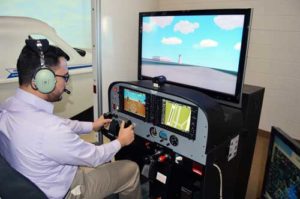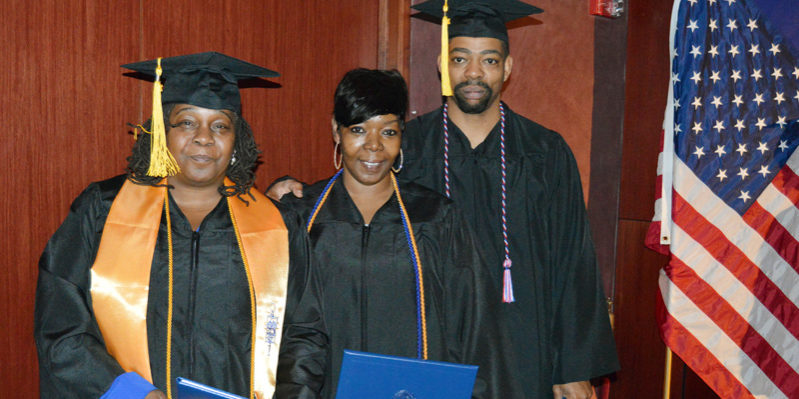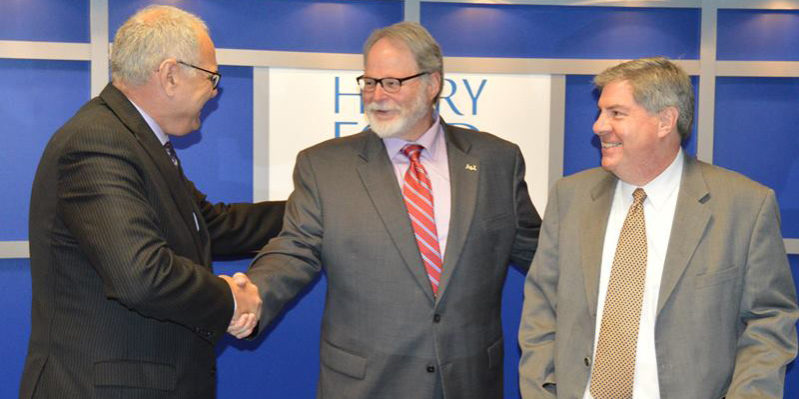
Visit hfcc.edu/academics/programs/pre-engineering.
Are you creative? Inquisitive? Have a good imagination? Do you enjoy figuring out how things work? Would you like to reduce pollution or create a labor-saving device?
If you answered “yes” to any or all of these questions, you may want to consider an engineering career.

Hector Ochoa
Engineering programs are some of the most popular – and challenging – academic programs in the United States (U.S.). Engineers design, test, manage and improve items as varied as household appliances, computer chips, and cars. The profession is diverse, including everything from designing bridges and roads to developing sound systems to finding new energy sources. Engineers are crucial to improving our quality of life – both individually and globally.
According to Dr. Hassan Mohseni Nameghi, HFC Pre-Engineering Coordinator, Southeast Michigan has 182 percent more jobs for engineers when compared to the national average. There is also a 5.7 percent job growth rate expected for engineers in Southeast Michigan from 2016-25.
HFC’s Pre-Engineering program covers the first two years of an undergraduate degree program in engineering at a four-year educational institution. Upon completion of the associate degree, students can transfer to a four-year educational institution to complete their coursework in an undergraduate engineering program.
“Our Pre-Engineering program at HFC is very cutting edge. Not only do students undergo an intensive STEM (science, technology, engineering, and mathematics) curriculum, but there are plenty of hands-on activities that will hone their critical thinking skills and will benefit their professional growth and development in the long run,” said Nameghi.
A prime example of this is the National Science Foundation (NSF) naming a team of HFC pre-engineering students as one of the 10 finalists at the annual Community College Innovation Challenge (CCIC) for the past three consecutive years. The CCIC fosters development of critical innovation skills among students, calling upon them to propose innovative solutions based in the STEM fields to address complicated, real-world problems.
“Community colleges provide a unique avenue for developing our STEM workforce and broadening participation, and the CCIC is a platform that highlights the innovative efforts of students and professors to enhance their knowledge and contribute to solving challenging issues,” said Joan Ferrini-Mundy, NSF Asst. Director for Education and Human Resources.
Nameghi pointed out that HFC student Hector Ochoa completed the Caltech Aerospace Mentorship Program last year at the California Institute of Technology (Caltech) in Pasadena, CA. There, Ochoa worked alongside engineering students from Harvard University, Stanford University, and the Massachusetts Institute of Technology (MIT) on several projects.
Nameghi is the advisor of the HFC Engineering Club, which encourages students to explore careers in the engineering field and provides a forum for them to exchange ideas. Students work together in teams of three to five to create a project to solve real world problems. Some examples of this include a Bluetooth collar for dogs; a cooling pillow used to help people with sleeping disorders fall asleep; and a car window defroster.
“Engineering is the way to go. I like seeing the 3-D process and how things function. To me, that’s just exciting. Engineering has a lot going on. There are just so many things you can do with an engineering degree. I love to draw. I love to be innovative. This has given me the opportunity to do just that,” said HFC student DeAndre Hill.
HFC has a transfer agreement with the University of Michigan-Dearborn (UM-Dearborn), where students can transfer a maximum of 72 credits toward an undergraduate degree in engineering. This option enables students to begin their education at HFC, earn an associate degree, and then transfer to UM-Dearborn, completing their studies toward a designated undergraduate degree in engineering – including bioengineering, computer engineering, electrical engineering, robotics engineering, mechanical engineering, industrial & systems engineering, and manufacturing engineering.
“This agreement reflects the trust of UM-Dearborn on the quality of education at HFC. This is an exceptional opportunity to provide students with an affordable education and seamless transfer to four-year schools. With this agreement, HFC and UM-Dearborn – two neighbors – are closer than they ever been over the past 20 years,” said Nameghi. “If an engineering career appeals to you, please consider HFC and begin your education here. There will always be a need for engineers, both locally and abroad. HFC is a place for students to grow and achieve success, regardless of their background.”
Kurt Anthony Krug & Naomi Sheehan



